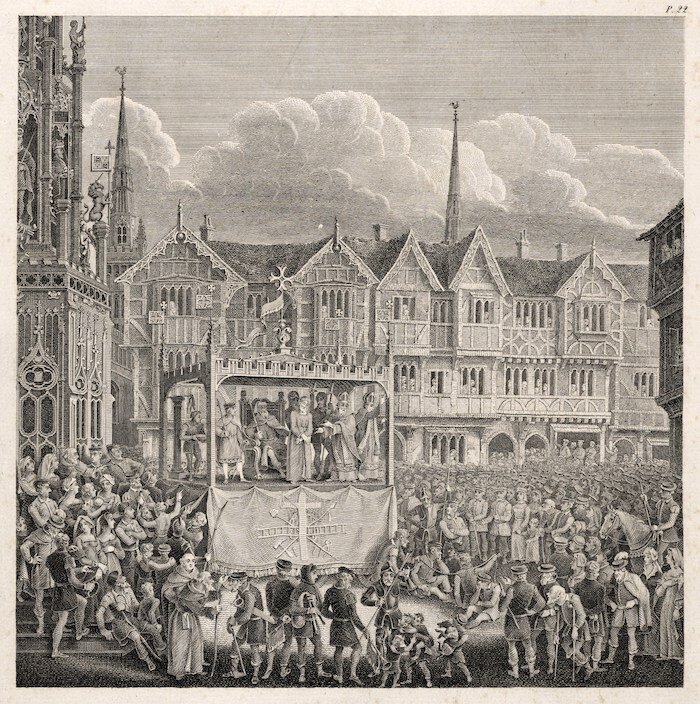This is a series on Advents and Christmas carols, but today we are looking at a carol that was originally written as a song to be performed as part of the celebrations of the summertime feast of Corpus Christi. In the medieval period in England, dramatic presentations of salvation history—usually spanning all time from Creation to Doomsda—were a major part of the way in which Corpus Christi was celebrated in many towns and cities.
All tagged hymns and carols
Hymns and Carols: Creator of the Stars of Night
Watching is so difficult. It can feel incredibly self-conscious, awkward, indulgent, or even just plain boring. Yet watching is what we are called to do in Advent as we await the coming of the Lord in our midst. ‘When these things begin to take place, stand up and lift up your heads, because your redemption is drawing near,’ (Luke 21.28) is the gospel injunction, as greeting the apocalypse should be done fearlessly in faith.
Hymns and Carols: Gabriel's Message
The medieval Basque hymn ‘Gabriel’s Message’ tells the story of the Annunciation in the context of Christmas. The worship of heaven and earth conjoin as the chorus repeats the connection between the Blessed Virgin Mary’s unique status as the Mother of God and the desire to honour and praise both her and God.
Hymns and Carols: Five Songs
This Advent and Christmas season, the School of Theology has been celebrating the tradition of carolling that we now strongly associate with this season. But actually, the carol hasn’t always had an easy association with the celebration of Christmas. In the medieval period, carols were popular dance songs, especially for a sort of circle dance. […]
Hymns and Carols: In the Bleak Mid-winter
I remember well a conversation I had about Christina Rossetti’s poem In the Bleak Mid-winterover twenty years ago. I was an earnest young Christian undergraduate reading English Literature. I had just “discovered” Rossetti, and was planning to write my dissertation on her poetry. Talking with another earnest young Christian undergraduate of my acquaintance, I described Rossetti as an important Victorian religious writer. “What did she write?” he asked. My first thought was to mention In the Bleak Mid-winter, probably her best-known work owing to its having been memorably set to music as a Christmas carol by Gustav Holst. But this was a mistake […]
Hymns and Carols: Of the Father’s Heart Begotten
Singing together in the Christian community goes back to its origins, as the earliest disciples were immersed in the Jewish tradition of singing psalms. In Mark’s account of the Last Supper (Mark 14: 26) we read of Jesus and his friends singing a hymn before they went out to the Mount of Olives. The hymn-singing practice of the early church is suggested by the writer to the Ephesian Christians who exhorted them not to get drunk with wine, but to “be filled with the Spirit, as you sing psalms and hymns and spiritual songs […]
Hymns and Carols: Adam Lay Ybounden
There’s a strange thing that happens during sermon preparation at Easter and Christmas. At Easter, preparing sermons about the death and resurrection of Christ, it becomes almost impossible not to dwell on the events we celebrate at Christmas. As we reflect on the Christ’s Passion, the babe lying in the manger springs to mind. […]
Hymns and Carols: O Come O Come Emmanuel
Advent is my favourite liturgical season, and I think this is because it expresses something of the Christian life that resonates with my experience of it. Of course it is true that we are resurrection people, and therefore Easter says something fundamentally true about us. Of course we are people of the incarnation, and therefore Christmas gives voice to that aspect of our identity. But we are also people in waiting, but it is a funny kind of waiting. […]







